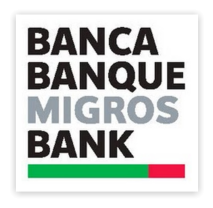Housing & Accommodation in Switzerland
Competition to rent Swiss apartments is fierce, and it can be hard to find decent accommodation in Switzerland. The saturated Swiss rental markets in major cities means competition for Swiss rental properties is hard and that you need to act fast if you wish to find a decent apartment to rent in Switzerland. THE ANSWER: SIEPS! Whether you seek a single room, a studio or a luxury apartment, SIEPS will address your requirements and help you to find an accommodation in Switzerland. SIEPS offers a large array of housing services as described in more detail under our services section. Finding housing in Switzerland is not as simple as it seems. The saturated Swiss rental markets, the language barrier, the housing search (time consuming), the endless visits, and then the question of financial guarantees. SIEPS handles the whole process for you! Furthermore, SIEPS will provide personal and corporate financial guarantees for your housing so you can move in immediately! Entering a rental agreement in Switzerland usually requires a 3 months in advance paid deposit equal to the amount required for 3 months of rent. Additionally, the rent for the first month of occupancy is payable in advance. A furnished studio apartment with kitchen and bathroom facilities typically rents start from CHF1000.- per month.









Where to start? - The SIEPS Housing Database
SIEPS has more than 25 years of experience in the real estate market in Switzerland. We understand our clients, their culture, preferences and requirements and we make available to them our network of partners and professionals in the real estate market in Switzerland. Our housing objects under management are selected and tailor provided to our clients’ needs. We provide you the right housing object in the right location! When we select housing options for the publishing in our Housing Database, special attention is given to satisfying the requirements of our clients & partners. Consequently, our housing database provides available housing & accommodation options in relation to: Proximity of Schools & Universities. Proximity of public transport. Proximity of services & shopping facilitiesFinding temporary housing and furnished apartments
Temporary housing can be obtained by renting a room usually in a privately owned house or large apartment. In this case a home owner has free space available in their residence, and decides to rent it out. Rights to use the rest of the house (kitchen, living room etc..) are often negotiated and agreed upon between the person renting a room and the owner. Another viable option in Switzerland to find temporary accommodation is sub-letting. Normally obtained through your personal network of friends and acquaintances, and or on internal message boards of large organisations. SIEPS has access to a considerable pool of short-term, and furnished lodgings.
Administration Links
Travel Links
Useful Links



It
is
not
uncommon
to
rent
housing
in
Switzerland,
as
a
matter
of
fact,
over
60%
of
the
population
lives
in
rented
accommodation.
As
in
most
European
countries,
rental
rates
vary
depending
on
the
area
in
which
you
are
looking
to
rent
(with
cities
being
notably
more expensive than country / rural areas).
The
Swiss
rental
market
provides
a
large
variety
of
accommodation.
From
small
1-room
studios,
to
massive
city-centre
loft;
Switzerland
is
sure
to
have
something
to
match
your
requirement.
However,
areas
such
as
Geneva,
Zurich
and
Basel
have
seen
property
prices
on
a
steady
rise
in
recent
years.
This
coupled
with
the
scarce
availability
of
accommodation
in
these
sought-after
areas
has
made
it
a
real
challenge
for
international
newcomers
to
find
desirable, reasonably priced, accommodation.
Scarce
availability
and
high
prices,
have
left
people
battling
between
themselves
for
affordable
accommodation.
In
an
application
to
rent,
tenants
will
typically
provide
as
much
information
about
themselves
as
possible
in
order
to
make
their
application
stand
out from the others.
While
it
may
be
a
challenge
to
obtain
an
apartment
in
Switzerland,
they
do
have
their
benefits.
For
example,
a
typical
apartment
in
Switzerland
comes
with
communal
parking,
green
spaces,
and
a
playground
for
children
of
the
area.
Also,
long-term
tenancies
of
more
than
20
year
are
fairly
common,
adding
a
sense
of
community
to
regular
suburban
neighborhoods.
Finding an apartment in Switzerland
While most available properties to rent can be found online, given the competitive nature of the Swiss rental market, it is often worth investigating multiple options in order to find what you are looking for. • Search online • Check the paper • Get to know estate agents • Tell everyone you know • Consider a sub-let There is no getting around the fact that in popular parts of Switzerland (Geneva, Zurich, Lausanne, Basel) finding rental property is a very time-consuming process. Real estate agencies understand the high demand for their properties and therefore have no need to do any further marketing other than posting their available accommodation online. They typically work on a first-come first-serve basis and will generally accept the application which most limits their risk. The volatile, fast moving pace of the this market, will often leave you to find apartments online which are no longer available, or for which the agency has already received a sizeable amount of application forms. This means that in order to find ande obtain housing which best suits your requirements in sought-after locations, you need to be pre- emptive in finding accommodation, and quick to apply.Swiss housing descriptions
Like most other European countries, accommodation size is described squared meters (m2). In Switzerland, it is also common to find a “number of total” rooms in the description. This number usually does not take into consideration bathrooms and kitchens. The majority of accommodation in Switzerland is rented unfurnished, often even without light fittings. Should you be renting an apartment in a building with laundry facilities you will normally be allocated a time slot where you may use them. The Swiss appreciate their outdoors, and so many buildings are equipped with balconies and access to a communal garden and or playground for neighborhood locals.Living costs in Switzerland
• Housing: between CHF800.00 and CHF2900.00 per month, depending essentially on the size of the apartment and whether it is furnished or not. • Electricity and Internet / TV: between CHF60.00 and CHF250.00 per month, depending on electricity consumption and Internet / TV contract. • Insurance costs (Health & Accident (compulsory in Switzerland) / Third-party liability insurance / Household insurance / Insurance against the effects caused by fire and / or natural disaster): between CHF1200.00 and CHF4000.00 per year, depending on where you live within Switzerland, your age, your gender, your status (student or other), the member’s portion, whether you opt for basic insurance plans or more comprehensive ones, and finally the insurance company. • TV and radio reception tax (payable per household, and as soon as you have at least one computer (portable or desktop) in the household: at least CHF170.00 per month, maximum CHF280.00. • Food: approx. CHF1000.00 per month, if you cook yourself. • Toiletry items and some recreational / entertainment costs: approx. CHF500.00 per month • Transport costs (public transport, locally): rough estimate CHF150.00 per month. The above works out at between CHF2780.00 and CHF5415.00 per month.Applying to rent an apartment in Switzerland
Being quick to put down an application to rent is key to obtaining the apartment you desire in Switzerland. Most landlords or agencies receive a notable amount of applications for the same available housing object shortly after it having been advertised. This means that they can choose any application which represents the least amount of risk to them. Swiss rental applications are comprehensive documents. Expect to provide your: • Age • Marital status and number of children • Profession and employer • A letter of reference or indication of employment from your employer • Salary • Residency or visa status • Often including copies of passports and visas • Number and type of pets • Planned duration of stay You will also often have to provide a document proving that you are not being pursued for debts or other legal judgements. This is called an “extrait du Registre des poursuites / Auszug aus dem Betreibungsregister / estratto del registro dell'Ufficio delle Esecuzioni e Fallimenti”. If you've lived in the country for a while, make a formal request (for which you will be charged) at the nearest “Office des poursuites / Betreibungsamt / Ufficio delle Esecuzioni e Fallimenti”. If you've recently arrived, you may be able to request one from your previous place of residence, but in the first instance you should discuss your situation with the estate agent.Rental Contract
All tenants should have a written rental contract between the landlord and the tenant, stipulating the basis upon which the housing object has been rented. This should cover: • Rent • Tenancy start and end date • How and when to give notice (see next section) • Detailed property inventory • Tenant rights to shared services • Quiet hours • Any other house rules There are several types of rental contracts: • Term contract: ends after a pre-determined period without having had to give notice, • Rental contract with automatic renewal after each rental cycle, if notice has not been given within the deadline stipulated in the rental contract.Starting and ending a Rental Contract
The rental period of rental contracts can range from 1 to 12 months and more. Rental contracts usually start on the 1st or 15th day of any month. With regard to unfurnished housing, the rental contract spreads very often over an initial rental period of 12 months, with an automatic renewal of the rental contract for a further 12 months after any 12-month rental cycle. Any rental contract may be terminated within the deadlines stipulated in the rental contract. For a rental contract of 12 months with an automatic renewal for 12 months, the notice period is usually 3 to 4 months before the end of any 12-month rental cycle. Rental contract end dates which fall into the month of December, are usually deferred to the month of January. Premature departure from your housing (outside the deadlines stipulated in the rental contract) is possible, but it would be your responsibility to introduce a new tenant to the agency or housing owner. If the new tenant is accepted by the agency / housing owner, your financial and legal responsibility would end on the date from which the new tenant’s responsibility commences for the housing you are leaving.Cost of renting housing in Switzerland
A 3-month rent deposit is standard when moving into a new apartment. A bank trust account must be opened. This deposit is blocked in a bank trust account until the end of the tenant’s rental contract. The deposit can, therefore, not be used to pay outstanding rent during the rental period. The deposit serves essentially to cover possible costs resulting from the repair of accidental damage caused to the housing or its contents. If the apartment is not handed back in a perfectly clean condition, the Real Estate Agency or the housing owner, might mandate a company to clean the housing and deduct such costs from the deposit. Once the contract reaches term, all rent has been paid to date, and no damage has been caused to the apartment, the tenants’ rent deposit is released back to them. Other possible costs, before moving into housing: • Real Estate Agency fee for the drawing up of the rental contract (most of the time). • Rental contract cancellation fee (would apply if a rental contract has been drawn up, but then is not signed). • Housing proposal fee (would apply, if you have delegated the housing search to another party, such as SIEPS, for example). • Application processing fees (if you mandate another party to compile the rental application package. Additional costs after having moved into housing: In addition to the rent, the tenant must often pay a service fee for the care and maintenance of communal areas. This may or may not be included in the rent, so it’s important to double check when you view the property and ensure that the rental contract is clear. Furthermore, you will have to budget for the cost of the insurances, usually required when renting housing, the TV & radio reception fees, electricity and multimedia cost. A monthly estimate is usually charged regarding the heating and warm water cost. Once per year you will receive, from the Real Estate Agency, an invoice, which will reflect the cost of your actual consumption of heating and warm water. The estimated amounts which you have paid each month will be deducted from the cost for actual consumption. If the estimated monthly payments have resulted in an over-payment, you will be refunded; in the case of an under-payment, you will be requested to effect an additional paymentQuiet Hours
Generally from 10.00pm to 07.00am, 12:00am to 01:00pm, and all Sundays fall into the category of “quiet hours”. During these times, tenants are expected to limit the noise they make so as not to disturb any neighbors. This means that machinery, power tools, loud music or even loud speech are frowned upon, and may cause neighbors to complain.Pets
It's worth noting that Swiss landlords do not have to allow pets and many don't. So if you're thinking of acquiring a pet, wait until you've found a home and then verify with the Real Estate Agency / housing owner, what the ruling is in this respect.. Small caged animals such as birds or fish are generally permitted.Tenant’s rights
As a tenant in Switzerland you have strong rights defending your interests. In most cases, Swiss landlords are no trouble and promote fair treatment. However should you have any issues, the Swiss local housing arbitration agency is available to help you stay informed of your rights (this service is generally only offered the country’s official languages).
Chemin des Bruyères 5
•
CH-1007 Lausanne
•
Switzerland
Tel: +41 (0) 21 616 00 11
•
•
Email: info@sieps.ch



Home
About Us
About Switzerland
Why study in Switzerland?
Private Education in Switzerland
About Housing & Accommodation
Passports & Visas
Study Permit Procedure
Important Numbers in Switzerland
Frequently Asked Questions (FAQ)
Why SIEPS?
Educational Services
Housing Services
Guarantor Services
Administrative Services
Contact Us
Housing and Accommodation in Switzerland
Private Schools & Universities in Switzerland
Educational Programs offered by Private Schools & Universities in Switzerland
Accreditation Agencies Worldwide
Degrees offered by Swiss Private Schools & Universities
Affiliation Bodies associated with Swiss Private Schools & Universities















































